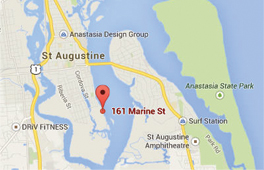5 Things to Know about Medicaid-Sponsored Home Care
In recent years, the home care industry has expanded significantly. Now, services that were previously available only in nursing homes are readily accessible to many seniors opting to age in place.
From meal delivery to in-home medical care, there are more services available than ever before. Learn from the top five things to know about these services and about medicaid-sponsored home care.
5 Things to Know about Medicaid-Sponsored Home Care
Just a few years ago, a senior’s only option was to move into a nursing home. Now, many more seniors are able to remain in the comfort of home while still receiving a number of vitally-needed services that ensure their health and well-being.
Senior Planning Services, a New Jersey-based Medicaid planning company that assists seniors and their families with Medicaid-sponsored senior care, would like to address several frequently asked questions in regards to home care.
1. Will Medicaid Pay for Home Care?
For many seniors, home care is the only thing standing between them and a nursing home. These individuals are no longer able to fully care for themselves, typically because of deteriorating health or mental state. Seniors who would otherwise need nursing home care can, thankfully, receive benefits from Medicaid to help pay for home care.
2. What Are Home and Community Based Services?
Home and Community Based Services (HCBS) are designed to allow individuals to receive necessary services in their own homes or as part of their existing community. Many seniors are reluctant to move into nursing homes, particularly if they’re currently residents in a senior living community or if they have health problems that are expected to improve over time. For these individuals, home care — including both necessary medical care and help with day-to-day tasks— is a crucial part of the aging process.
3. What Services Are Offered through Medicaid?
For individuals who are eligible for home care, there are a wide variety of services available. It’s not just medical care, though in-home physical therapy, medication administration, and other medical services are often important aspects of home care. Seniors can receive services that will help with simple cooking, cleaning, and laundry tasks; personal care support for bathing, dressing, and shaving; and meal delivery. Other services include the delivery of medical equipment, assistive devices like wheelchairs and canes, and simple home modifications like safety rails that will make staying at home easier.
4. Who Qualifies for Home Care through Medicaid?
The first part of qualifying for home care through Medicaid is medical: in order to qualify, a senior must be in need of in-home services. Typically, these services must be necessary in order to keep that individual out of a nursing home. The second part is financial: individuals who qualify for home care through Medicaid must have low income and few assets remaining. These limits, however, are often higher than they would be to receive normal Medicaid services. In New York, for example, the asset limit for an individual living alone is $14,850 and the income limit is $825 per month. Both of these numbers are significantly higher than the eligibility standards for other Medicaid services.
5. Can a Family Caregiver Be Paid by Medicaid?
Typically, when Medicaid provides home care, it does it through a home care agency. The agency is paid by Medicaid to provide all of the services necessary for an individual to continue to thrive in their own home. Unfortunately, for many seniors, this is a less than ideal solution. In addition to the fact that the caregiver in these cases is a stranger, many home care agencies are overstretched, with more clients than they can easily provide for.
In these cases, home care by a family member can be provided. The accessibility of payment for a family member to provide home care varies by state, but some states do have programs in place that will cover payment of a family member instead of paying a home care agency to provide these services. For many seniors, home care is the preferred way to age gracefully, receiving the help that they need while remaining in their own homes for as long as possible.
As Dorothy says in “The Wizard of Oz,” “There’s truly no place like home” — a sentiment that many seniors cling to as they need increasingly more assistance.
As the home care industry continues to expand, it will become increasingly easier for individuals in need of home care to receive exactly the services they need, especially with Medicaid to help with payment. This shift in available services means that many seniors will be able to lead the comfortable, involved lives that they prefer long past the time when the demands of their bodies increase and age causes them to need more help than before.
Are you currently providing home care for a senior loved one? What questions do you have about Medicaid-sponsored home care? Share your thoughts with us in the comments below.








